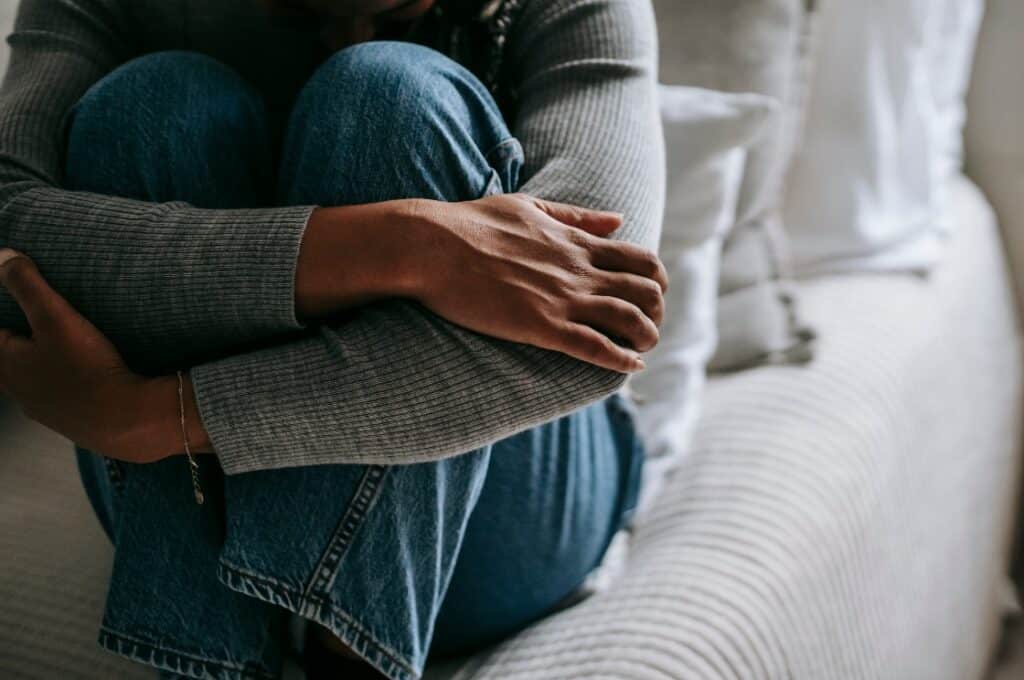Anxiety may cause a variety of unhealthy coping mechanisms to develop. This can present as self-destructive behaviors like self-harm. On the other hand, you may fall into self-medication. Attempting to use alcohol to ease your anxiety will prove to be counterintuitive and even dangerous. Here are some reasons why alcohol and anxiety don’t mix.
How Does Alcohol Affect You?
Drinking alcohol affects the brain both short-term and long-term. Alcohol weakens inhibition, motor function, and decision-making skills. Over time, you begin to build a tolerance for it. It will take larger amounts of alcohol to reach your desired effect. In extreme cases, it may take a deadly amount of alcohol to feel drunk.
When your alcohol level begins to decrease, you feel the effects of withdrawal. Symptoms of this include the following:
- Increased heart rate and blood pressure
- Nausea
- Clammy hands
- Shaking
- Headache
- Agitation
- Insomnia
- Hallucinations
- Seizures
Additionally, withdrawal can cause the exact opposite effect of what drew you to the substance to begin with. As your body detoxifies, you might feel unbearably high anxiety.
How Does Anxiety Affect You?
The part of your brain that triggers your anxiety is called the amygdala. In people without anxiety, when you are in front of something frightening to you, the amygdala sends hormones like cortisol throughout your body. This triggers your fight-or-flight response. Blood rushes to your limbs and muscles to prepare you to fight or run. For people with anxiety, this reaction triggers whether there is any logical reason behind it.
Physical symptoms of anxiety include the following:
- Increased heart rate and blood pressure
- Nausea
- Clammy or sweaty hands
- Shaking
Additionally, when you’re coping with anxiety, you’ll have a flood of irrational thoughts racing through your mind.
The Consequences of Alcohol Use as a Coping Strategy
When you use alcohol as a coping mechanism for your anxiety, you may feel some relief initially. At the peak of its influence, you may feel a decrease in the symptoms of your anxiety. This is what often leads people to continue to use the substance as a coping strategy. Short-term relief is better than no relief, right? Unfortunately, no.
As your tolerance increases, you will be required to drink larger amounts of alcohol to ease your anxiety the way you had the time before. An article in the Alcohol Research psychology journal shows that this process increases your risk of developing an alcohol use disorder (AUD). This is very dangerous as long-term alcohol use can permanently damage your brain.
Moreover, did you notice that symptoms of anxiety and symptoms of withdrawal are almost identical? This is another reason why alcohol is not a healthy coping mechanism for easing your anxiety. When you drink and you feel that initial relief, your anxiety is eased. However, when you begin feeling those symptoms of withdrawal, you will begin to feel symptoms of anxiety again. That feeling may drive you to drink more to get rid of the feeling again. This is incredibly dangerous and unhealthy as it leads to addiction.
If you use alcohol long-term to cope with anxiety, your body will get used to the feeling of alcohol in your system. At this point, a sudden drop in your blood alcohol level may trigger anxiety immediately as symptoms of withdrawal settle in. The result of this strategy often leads to an AUD or dependence.
Healthier Ways to Cope
There are healthier ways to cope with your anxiety. Some are as simple as doing deep breathing exercises or meditating. Breathe in through your nose and out through your mouth slowly. This lowers heart rate and blood pressure similarly to how alcohol lowers heart rate and blood pressure. One strategy that often is written off is positive thinking. Thinking positively about yourself can help lower your anxiety.
Other ways to cope with anxiety without the use of alcohol include the following:
- Exercise: Exercising releases dopamine in the brain. This can help regulate your heart rate and breathing.
- Grounding: Use all five senses to identify the world around you. Find something you can see, hear, taste, touch, and smell.
- Tools: Fidget toys can help you stay present in your body. There are many different kinds of fidget toys. Exploring different types can help you to better determine which ones work for you.
- Support: Talk to a friend or loved one. Having a support system can greatly decrease your anxiety.
Talk to a Therapist
If you find coping on your own difficult, it may be time to ask a professional for help. A therapist can help you explore new ways to cope with your anxiety. They can connect you with support groups for anxiety and addiction recovery. Therapy is a great way to explore your feelings and triggers. It will help you discover what works for you and what doesn’t. Simply talking with an unbiased source of support can be the difference you need to stay sober.
Mindfuli understands that it can be difficult to find coping strategies that work for you. By talking with a therapist or counselor, you can begin exploring different healthy coping mechanisms and take back your life. Alcohol and anxiety do not define who you are. You are so much more than your anxiety. With a little extra help, you can begin to explore new ways to be confident in your own life. You don’t have to go through this alone. A therapist can be there for you to help you through all aspects of your life good and bad. It’s time to take control. Call Mindfuli at (866) 973-4415 to learn more.
